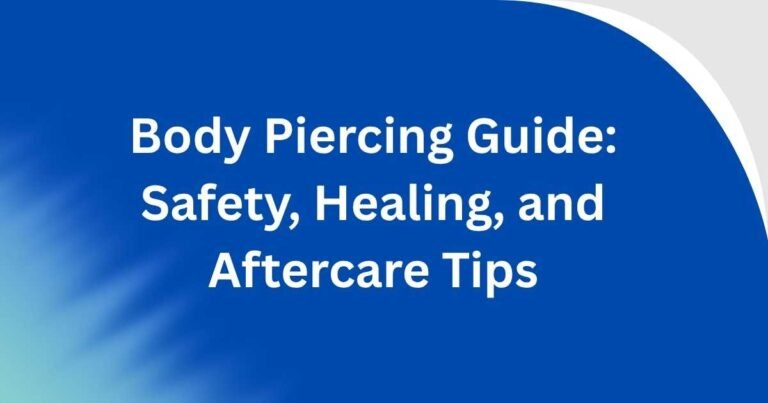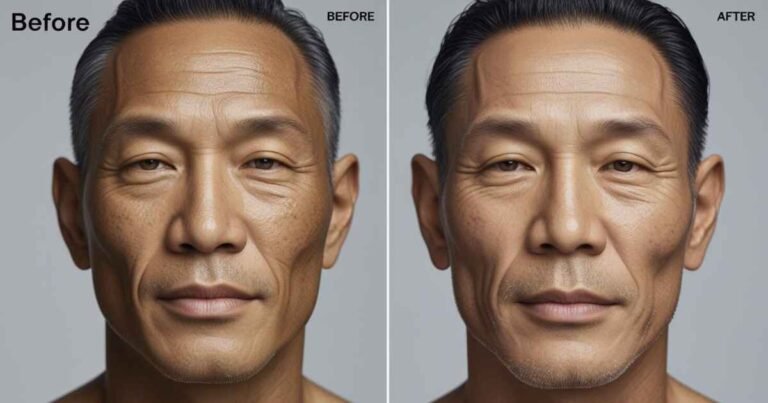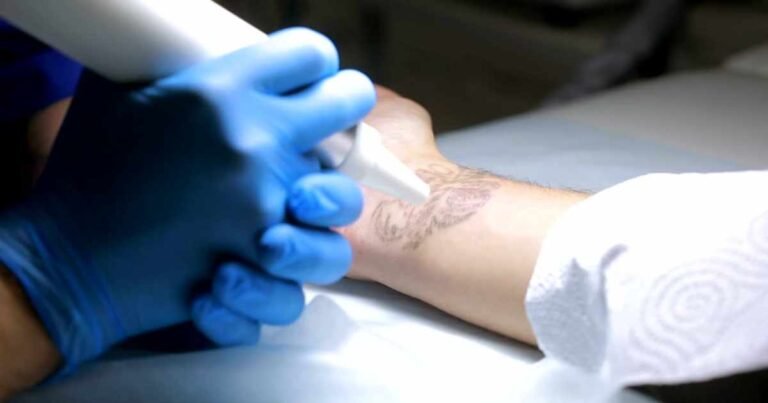Feel Rain on Your Skin: A Gentle Guide to the Unexpected Sensation

Feel Rain on Your Skin: A Healing Sensation or a Health Signal?
The Strange Beauty of Phantom Raindrops
Have you ever sat quietly and suddenly felt droplets of water on your arm or back—only to realize there’s no rain, no leak, and nothing touching your skin?
That soft, eerie feeling of raindrops without rain is more common than you might think. Some find it comforting. Others are disturbed by its mystery.
But what does it really mean to feel rain on your skin when no water is present?
Sometimes, it’s just your body playing tricks on you. Other times, it might be a subtle sign of something deeper—like nerve sensitivity, stress, or vitamin deficiencies.
In this article, we’ll explore:
- Why people feel phantom raindrops
- The science behind touch and skin sensitivity
- Health conditions linked to this sensation
- Practical ways to fix or embrace it
- When to talk to a doctor
How Your Skin Feels the World
Your skin isn’t just for protection—it’s a full sensory system.
It holds special nerve endings that pick up everything:
- Light touches
- Pressure and vibration
- Temperature changes
- Pain and discomfort
Once your skin receives this input, it sends the signal to your brain’s somatosensory cortex—the part responsible for interpreting touch.
But like any communication system, sometimes the message gets garbled. That’s when weird things happen—like feeling rain that isn’t there.
Paresthesia: When Your Nerves Misfire
The most common reason you feel invisible droplets is paresthesia.
Paresthesia is a medical term that means “abnormal skin sensation.” It can feel like:
- Pins and needles
- Tingling or buzzing
- Water trickling or dripping
- Skin crawling
You’ve probably felt this before—like when your foot “falls asleep.” But when it happens frequently or randomly, it can point to an underlying issue.
Common Causes of Paresthesia
- Vitamin B12 or D deficiency
- Poor blood circulation
- Diabetes (nerve damage)
- Stress and anxiety
- Holding a position too long
- Compressed nerves in the neck or back
Real-Life Example: The Case of Phantom Rain
Maria, 33, works as a digital artist. After months of back pain and fatigue, she began feeling random water drops on her legs—especially after sitting for long hours.
At first, she thought it was her imagination. But it kept happening.
Her doctor ran blood tests and found she had a B12 deficiency. With supplements and some physical therapy, the phantom raindrop sensations faded within a few weeks.
This story is common—and shows how minor deficiencies can lead to strange sensory glitches.
Dysesthesia: When It’s Not Just a Feeling, But Pain
While paresthesia is often painless, dysesthesia is more serious. It involves uncomfortable, sometimes painful sensations like:
- Burning
- Freezing
- Sharp stabbing
- “Stinging rain”
This type of nerve disturbance can affect daily life and may point to deeper neurological issues.
Conditions That May Cause Dysesthesia
- Multiple sclerosis (MS)
- Fibromyalgia
- Post-herpetic neuralgia (shingles aftermath)
- Chemotherapy-induced neuropathy
- Spinal cord injuries
If the rain sensation hurts or comes with numbness, it’s time to talk to a specialist.
Could It Be Stress or Anxiety? Yes.
Believe it or not, emotional health plays a big role in how we physically feel things.
When you’re anxious, your nervous system goes into high alert. Small sensations can feel exaggerated. Even slight air movement can feel like rain on your skin.
This is called somatic amplification—where your brain misreads harmless bodily signals as something bigger.
Signs You May Be Dealing with Anxiety-Based Sensations
- Phantom touches occur during stressful periods
- Sensations come and go quickly
- You also feel racing heart, shallow breathing, or muscle tension
The good news? These sensations often fade once you address the stress source.
Can You Heal or Prevent This? Absolutely.
If the feeling of raindrops on your skin is bothering you, here are steps to get relief:
1. Fix Nutrient Deficiencies
- Get a blood test for Vitamin B12, Vitamin D, Magnesium, and Iron
- Add leafy greens, nuts, fish, and fortified cereals to your diet
- Consider supplements if advised by your doctor
2. Improve Posture and Movement
- Avoid sitting too long in one position
- Take short stretch breaks during work
- Try light yoga or brisk walking to improve nerve circulation
3. Retrain Your Skin and Brain
You can actually “teach” your body how to process sensations correctly again.
Try:
- Texture therapy: Rub different materials (cotton, rubber, wood) gently across your skin
- Temperature contrast: Use warm and cool compresses
- Meditative touch: Close your eyes and focus on real sensations from water, wind, and fabric
4. Manage Anxiety
If stress is part of the problem, you need both physical and mental healing:
- Deep breathing or box breathing (inhale 4 sec, hold 4, exhale 4, hold 4)
- Journaling your emotions
- Avoiding caffeine or processed sugar
- Speaking to a therapist or counselor
Table: What It Might Mean When You Feel Rain on Your Skin
| Symptom | Possible Cause | What to Do |
|---|---|---|
| Gentle water drop feeling | Paresthesia | Check vitamins, posture |
| Burning or icy raindrop pain | Dysesthesia | Consult neurologist |
| Drops only during stress | Anxiety or panic | Try calming techniques |
| Comes after long sitting | Nerve compression | Stretch and move regularly |
When Should You See a Doctor?
It’s okay to ignore it once or twice. But if the sensation is:
- Recurring daily
- Accompanied by pain or numbness
- Disrupting your sleep or focus
- Paired with weakness or vision changes
…then don’t wait. Schedule a checkup with your primary care doctor or neurologist.
They may order:
- Blood work
- MRI scans
- Nerve conduction tests
These tests are safe, quick, and often give answers fast.
FAQs About Feel Rain on Your Skin
Q: Is it normal to feel water drops on your skin randomly?
A: Occasionally, yes. But frequent sensations may be a sign of paresthesia or another nerve-related issue.
Q: Can dehydration cause this?
A: Indirectly, yes. Dehydrated skin is less sensitive and more prone to nerve misfiring.
Q: Can I treat this at home?
A: Mild cases often improve with better nutrition, movement, stress control, and rest.
Q: Is it a sign of mental illness?
A: Not at all. Stress and anxiety are very real and physical in their symptoms. It doesn’t mean you’re “crazy.”
Conclusion: You’re Not Imagining It—But You Can Heal It
To feel rain on your skin without rain is strange—but you’re not alone, and it’s nothing to be afraid of.
It’s your body speaking to you.
Sometimes it whispers, sometimes it sends weird messages. But with attention, care, and the right steps, you can tune back into the right signals.
Whether it’s a light tickle on your arm or a deeper sense of imbalance, now you know what it might mean—and how to respond.






